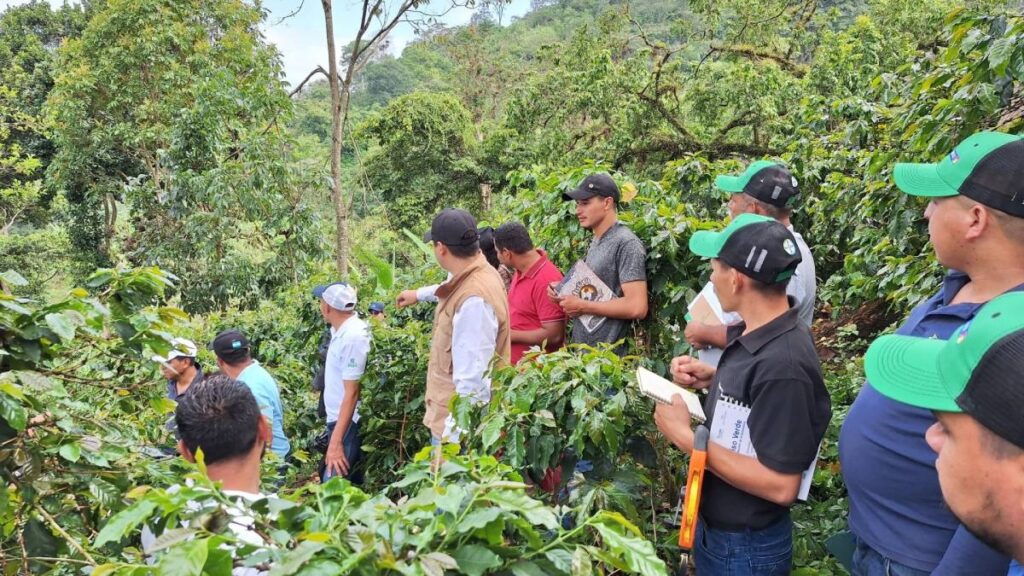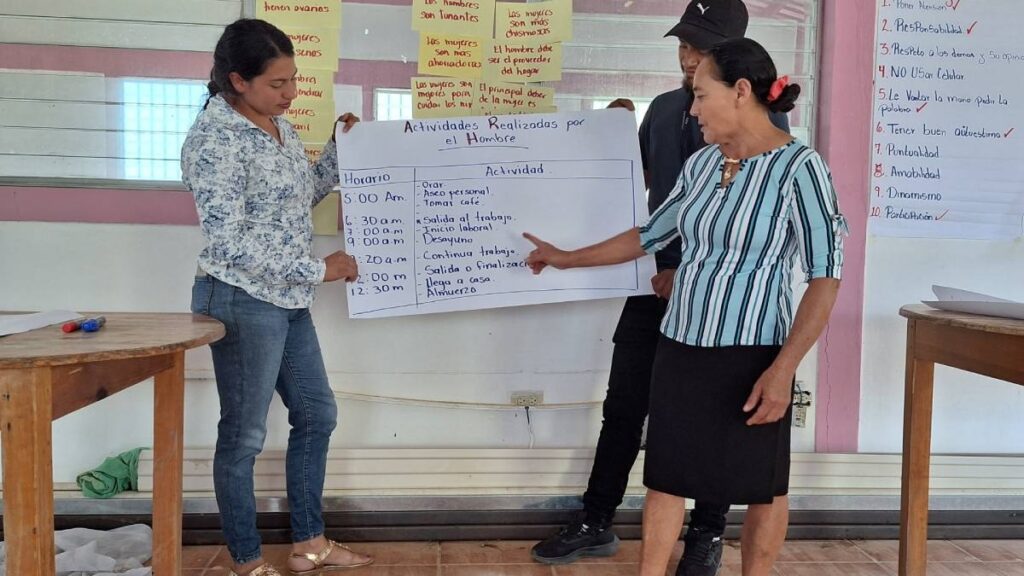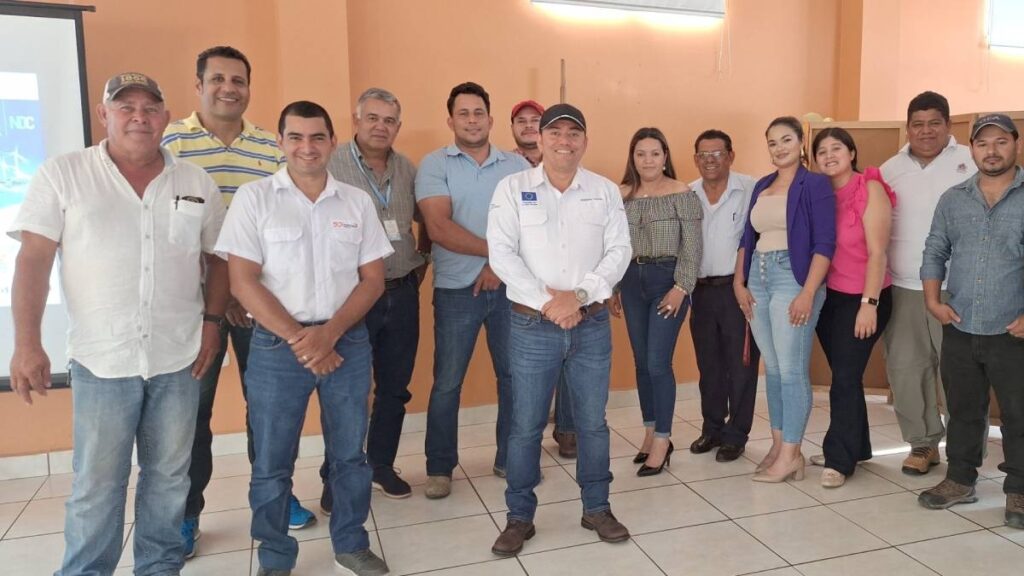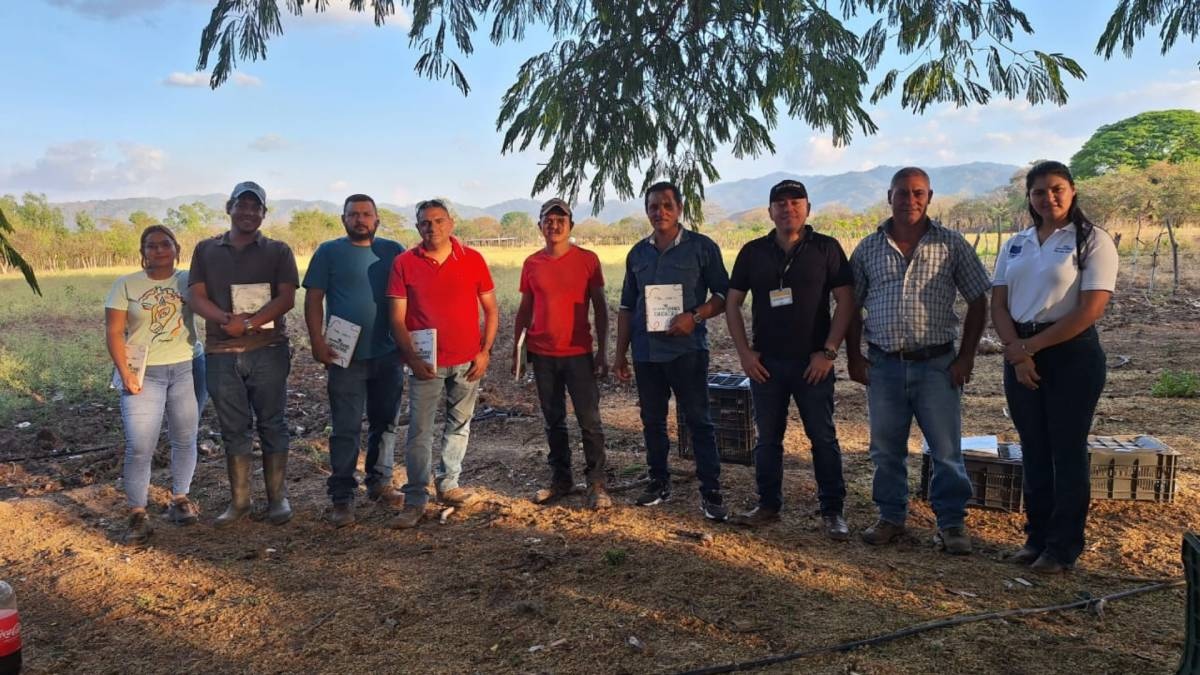Key achievements (2021–2023)
Between 2021 and 2023, the Paraíso Verde project demonstrated how strategic partnerships can drive measurable impact at the intersection of agricultural productivity, decarbonization and inclusive development. Funded by the European Union and implemented in partnership with Swisscontact, the project has successfully laid the groundwork for a more sustainable future. Central to this effort are gender equity and the strengthening of institutional governance. Together, these contributions underscore Paraíso Verde’s commitment to supporting smallholder farmers and promoting multi-stakeholder collaboration, driving lasting change across Central America.

Decarbonizing farm-based value chains
Using the Cool Farm Tool, 400 coffee farms and 50 cocoa farms have now mapped their carbon footprints. The results revealed net emissions of 1.22 kg CO₂e per kg of coffee and 16.45 kg CO₂e per kg of cocoa, critical baselines for designing targeted mitigation plans.
Behind the data are tangible changes:
- 2,276 producers trained in agroforestry, efficient water use, soil management, organic fertilizers (like Bocashi) and climate-resilient techniques.
- 1,402 agroforestry systems established, covering 3,226 hectares of coffee farms– evidence that sustainable practices can be scalable.

Inclusive capacity building
Sustainability isn’t just about the land; it’s about the people working it. Through 37 Field Schools (ECAs), 833 producers (with 24% women and 21% youth participation) learned about topics ranging from soil health and agroecology to gender equity.
One notable highlight was women producers taking the lead. In a 2022 exchange with APROCOMSA’s Gender Committee, they explored:
- “Way to Go”, an initiative connecting female farmers to international markets
- Entrepreneurial models like Mar de Montañas (eco-tourism) and Las Marías (value-added coffee products)
- Hands-on training in organic pest control and eco-friendly coffee processing
“When women see each other’s success as a mirror, we build our own paths forward”
Scarlette Zerón, gender specialist

Institutional governance & multi-stakeholder collaboration
Change endures when it’s built into systems. Paraíso Verde has:
- Equipped 104 technicians from 13 institutions with skills in EUDR compliance, carbon traceability and Honduras’ climate commitments
- Strengthened 13 local governments and platforms like the Coffee Roundtable (Mesa Agroclimática) to align policies with on-the-ground action
Looking ahead
Year 3 will start with training on the production and use of biochar as the project scales regenerative agriculture, expands access to differentiated markets and solidifies El Paraíso as a model for low-carbon, gender-inclusive farming in Honduras.
“By combining data, training and governance, we’re building a fairer, greener future for rural communities.”
Luis Rivas


